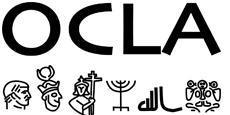Byzantium and the Christian East
Within a century of Constantine’s re-foundation of the ancient city of Byzantium, his ‘New Rome’ of Constantinople had become a great imperial capital, creating a new focus for political, cultural and economic activity in the eastern Mediterranean and beyond. Fifth-century emperors presided from Constantinople over a ‘Greek Roman Empire’ which enjoyed prosperity, cultural cohesion and security against external attack; in the sixth century the emperor Justinian even launched a programme of reconquest of several of the western provinces. In the seventh century, however, the empire underwent a severe crisis, with the loss of its southern provinces, first to Sasanian Persia, and then to Muslim Arabs.
Late Antiquity saw the development of a new style of imperial authority in Byzantium, now expressed in explicitly Christian terms; this was part of a broader transformation of the role of Christianity in culture and society, affecting everything from literary production to patterns of civic life. Distinctive Christian cultures also flourished in the southern and eastern provinces of the empire, and beyond, both in independent states (like Armenia) and under Sasanian or Arab rule. These communities worshipped and wrote in indigenous languages, such as Syriac, Armenian and Coptic. Increased interest in recent decades in the politics, society, economy and culture of the Byzantine and east-Christian worlds, and vigorous dialogue between historians, archaeologists, and literary and theological scholars, has led to recognition of the creativity and dynamism with which this complex society responded to challenges and change.
Oxford has a very strong tradition of Byzantine and east-Christian studies, which embraces all the disciplines and relevant languages, and is supported by first-class research-libraries (the Bodleian and the Sackler, both of which attract scholars from all over the world).
Researchers
Research Projects
Courses
Doctoral research into Byzantium and the Christian East can be carried out in a number of faculties, depending on the precise topic a student chooses to study (History, Oriental Studies, Theology, Archaeology, and Medieval and Modern Languages. Individual Faculties can provide advice and more details.
The two-year M.Phil. and one-year M.St. in ‘Late Antique and Byzantine Studies’ provide a good entry-point to the detailed study of the eastern empire and the east Christian world, offering an opportunity to learn an ancient language (whether Greek, Syriac, Coptic, Armenian, or Arabic) and to acquire specialist skills in disciplines like Palaeography and Archaeology, as well as offering students an opportunity to explore in depth topics that particularly interest them. These courses, which combine taught elements with supervised personal research, are very flexible geographically and chronologically, and can be tailored by students to suit their own needs and fancy.
For those interested specifically in late antique Christianity, the Theology Faculty includes M.St. in Ecclesiastical History and M.Phil. in Ecclesiastical History options which allow students to specialize in the patristic period.
The Eastern Christian world can be studied in depth through a two-year M.Phil. in Eastern Christian Studies, which provides an opportunity to examine the most creative period of the Eastern Christian tradition, including a detailed study of texts in Greek, Armenian, or Syriac. The latter two languages, and their literary and cultural traditions, can also be studied separately, through the one-year in M.St. in Classical Armenian Studies and the M.St. in Syriac Studies; these provide an ideal preparation for doctoral research in their respective fields, and offer a wide choice of subject and period specialisations.
Students with a particular interest in Archaeology can follow an archaeological route into the Byzantine and eastern world by taking an M.St. or M.Phil. in Classical Archaeology (choosing the options centred on the late antique period, or mixing these with options centred in earlier periods).
An M.St. or M.Phil. can either be used as a stand-alone qualification, or as an entry into doctoral research, at Oxford or elsewhere.




